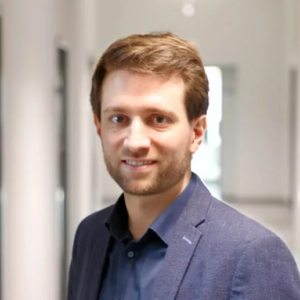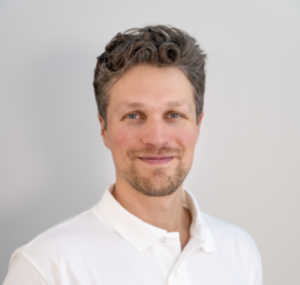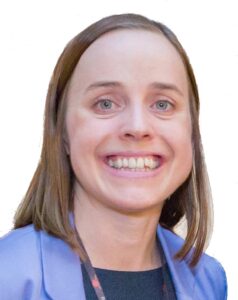The ODELIA project is structured to facilitate collaboration among a diverse consortium of partners, spanning multiple countries and disciplines. At its core, the project is organized into eight distinct work packages (WPs), each with a specific focus and set of objectives. These work packages are interconnected, ensuring a seamless progression from research and development to implementation and evaluation. Throughout the project, our consortium members leverage their unique expertise and resources to address complex challenges and drive innovation in medical AI and swarm learning.
ODELIA employs swarm learning, a decentralized approach to AI model training that does not require sharing patient data or relying on a central coordinator. This approach effectively addresses data privacy and security concerns, allowing institutions to collaborate without compromising sensitive information.
By involving a diverse set of partners and using swarm learning to train AI models, ODELIA ensures that the resulting AI algorithms are more robust, generalizable, and trustworthy. The project also emphasizes transparency and open-source development, fostering trust and encouraging further collaboration.
ODELIA works closely with regulatory bodies and policy makers to ensure that its AI solutions are developed in accordance with relevant guidelines and standards. This proactive engagement facilitates the swift adoption of ODELIA’s AI models in clinical practice, bridging the gap between research and real-world applications.
To maximize the potential of swarm learning and its impact on healthcare, ODELIA actively engages with opinion leaders, fosters collaboration, and initiates follow-up projects. By creating a marketplace for ideas and promoting the benefits of swarm learning, the project encourages widespread adoption and the development of new AI solutions.
WP1 focuses on demonstrating the feasibility of swarm learning by setting up the necessary hardware at international partner sites and connecting them in a swarm. The work package then trains an AI algorithm using publicly available x-ray, CT, and MRI data.
WP lead: Jakob Kather, TUD
WP2 utilizes the swarm learning network to train an AI algorithm for breast cancer detection in MRI, using real data from clinical experts. Local models based on gathered data are trained and compared to models trained on the swarm. A public challenge is set up to engage the worldwide community and select the best model structure. Finally, the AI model is fine-tuned to account for regional data differences.
WP lead: Daniel Truhn, UKA
In WP3, open-source code for swarm learning is implemented, making it accessible to the worldwide research community and enhancing it with functionalities important for clinical AI development. Active learning and access for regulatory bodies are added to facilitate regulatory adoption. The full working capacity of the product is demonstrated.
WP lead: Jakob Kather, TUD
WP4 is dedicated to building a front end that facilitates both data gathering for new AI model development and bridging the gap to clinical usability. A fully functional lightweight radiological image viewer is created for easy control over training inputs. This viewer is then amended to display the results of AI algorithms developed based on swarm learning. The clinical usability of both the AI algorithm and the front-end is tested on extended non-partner sites.
 WP lead: Firas Khader
WP lead: Firas Khader
WP5 aims to bridge the gap between research and commercial exploitation. The open-source implementation of swarm learning is refactored according to regulatory guidelines to be CE-ready. The medical viewer from WP4 is certified as a medical product for use in clinical studies. The work package also liaises with policy makers to realize the full potential of swarm learning for commercial exploitation.
WP lead: Volkmar Schulz, MEVIS
WP6 streamlines swarm learning for further clinically and commercially viable projects after ODELIA’s runtime. It initiates new ideas that make use of swarm learning and prepares them for continuation after the project’s end. The work package also engages industry participation to exploit swarm learning’s potential.
WP lead: Ritse Mann, RUMC
WP7 coordinates ODELIA’s communication activities, preparing project results for dissemination and policy recommendations. The work package ensures the project’s visibility and wide outreach to relevant stakeholders, disseminating research outputs and results, managing intellectual property, and establishing policy recommendations.
 WP lead: Ulrike Mayerhofer-Schirmer, EIBIR
WP lead: Ulrike Mayerhofer-Schirmer, EIBIR
WP8 focuses on the effective legal, contractual, administrative, and financial management of the project. It coordinates project governance, including the management of consortium-internal and external bodies, meetings, and ensures the quality and timeliness of project progress and results. The work package also addresses risk planning and the management of ethical issues.
WP lead: Peter Gordebeke, EIBIR
